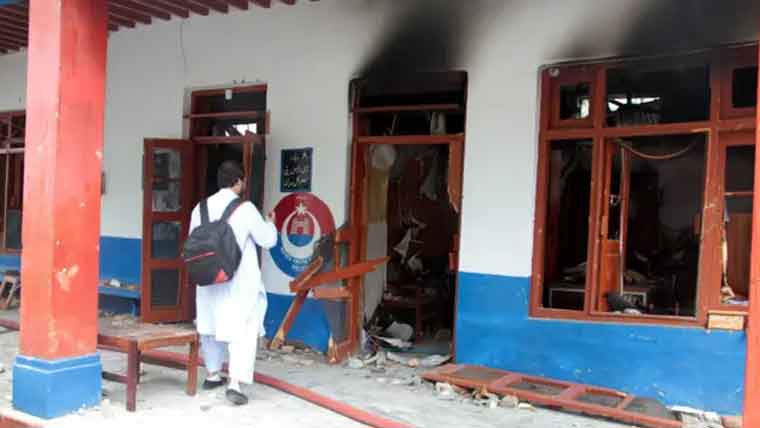
Following the tragic Madyan incident in Swat, numerous statements and perspectives have emerged, raising significant questions and diverse viewpoints. Various religious scholars across the country have condemned the incident, labeling it as a heinous and unconstitutional act.
Mufti Dr. Shaukat Ali, a teacher from Jamia Haqqania, the largest religious seminary in Khyber Pakhtunkhwa, condemned the Swat incident in a conversation with TNN. He described it as a very heinous act and emphasized that no individual or group is permitted to punish anyone legally, morally, or ethically.
Dr. Shaukat pointed out that while courts may sometimes fail to reach a logical conclusion in cases, this does not justify the actions witnessed in Swat, Sargodha, Jaranwala, and Sialkot, nor can they be considered aligned with Sharia law.
Also Read: The Marvels of Mushrooms: Nature's Nutrient Powerhouses
The Human Rights Commission of Pakistan (HRCP) has demanded immediate government action to prevent such incidents following the alleged torture and burning of a man accused of desecrating the Quran in Swat's Madyan area. In a statement issued on Saturday, the HRCP highlighted two similar incidents within a month, involving the deaths of Sulaiman in Swat and Nazeer in Sargodha, Punjab. The HRCP criticized the state's apparent silence on violence perpetrated by religious extremists in the name of faith.
The HRCP's statement emphasized that these incidents are not merely about flawed laws being weaponized under the guise of blasphemy. Instead, they reflect the consequences of decades of reactionary policies that have nurtured far-right groups and extremism. The state has been complicit, granting impunity to those who commit violence in the name of faith and failing to take decisive action when needed.
The Human Rights Commission also lamented the public's willingness to take the law into their own hands and urged the Council of Islamic Ideology to work towards curbing this dangerous trend.
Legal experts have similarly condemned public violence as illegal and unconstitutional, asserting that only the state has the authority to act against alleged wrongdoers. Shabbir Hussain Gagiani, a lawyer at the Peshawar High Court, told TNN that the violent incident in Swat should be widely condemned. He argued that such acts of violence create chaos in the country and criticized the state's failure in similar cases, such as the Mashal murder case in Mardan and the attack on police posts in Charsadda.
Gagiani emphasized that justifying vigilantism because institutions fail to deliver justice is both a legal and Shariah crime. He stressed that living in an Islamic country like Pakistan requires respecting its laws, which are formulated within the bounds of Shariah.
While the government has not yet responded to the HRCP, Federal Law Minister Azam Nazir Tarar presented a resolution in the National Assembly for the protection of minorities, which was unanimously approved. The resolution called for action against those who commit violence against minorities and for their protection by both central and provincial governments.
On June 20, a man named Sulaiman from Sialkot district, Punjab, was allegedly burned alive by an enraged mob over accusations of desecrating the Holy Quran. The Madyan police have registered a case against 2,000 to 2,500 people involved in the incident, naming 49 individuals directly. The police have claimed to have arrested 23 people so far.
Media reports indicate that a joint investigation team (JIT) has been formed to investigate the incident, though the duration of their investigation remains unspecified.
Similarly, on May 25, protesters attacked Mujahid Colony, a Christian community in Sargodha, Punjab, after alleging that Nazir Masih had insulted the Holy Quran, leading to his torture and death. Khyber Pakhtunkhwa Chief Minister Ali Amin Gandapur has taken notice of the Swat incident and has requested a report from the provincial IG.